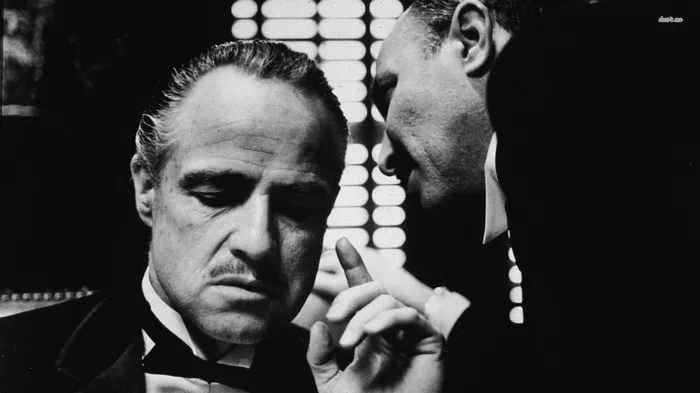In the annals of cinema, few works stand as tall and enduring as “The Godfather” trilogy, a magnum opus that has left an indelible mark on the landscape of filmmaking. As cinephiles and new generations of viewers continue to be captivated by the Corleone family saga, a fundamental question surfaces—How Many Movies of The Godfather Are There? This exploration embarks on a journey through the three cinematic masterpieces, tracing the evolution of the trilogy, and delving into the cultural impact that has solidified “The Godfather” as a cornerstone of cinematic history.
The Godfather Unveiled: A Trilogy of Cinematic Brilliance
1. The Godfather (1972): A Cinematic Revelation
The journey begins with the unparalleled masterpiece that started it all—“The Godfather” (1972). Directed by Francis Ford Coppola and based on the novel by Mario Puzo, this cinematic revelation introduces us to the world of the Corleones, a powerful Mafia family navigating the intricacies of power, loyalty, and betrayal. Marlon Brando’s iconic portrayal of Don Vito Corleone, alongside Al Pacino, set a new standard for storytelling and character development.
2. The Godfather Part II (1974): A Pinnacle of Sequel Excellence
Following the resounding success of the first installment, “The Godfather Part II” (1974) emerges as a rare sequel that not only lives up to but surpasses its predecessor. Coppola takes a daring narrative leap, intertwining the rise of a young Vito Corleone (played by Robert De Niro) with the challenges faced by his son, Michael (Al Pacino), as he grapples with the burdens of power. The film not only solidifies the trilogy’s status but also stands as a testament to the artistry of sequel-making.
3. The Godfather Part III (1990): A Pensive Coda
The trilogy concludes with “The Godfather Part III” (1990), providing a reflective coda to the Corleone saga. While not without its share of controversy and critique, the film explores themes of redemption and the enduring consequences of a life immersed in organized crime. Coppola’s decision to return to the narrative after a considerable gap invites audiences to witness the complexities of Michael Corleone’s later years.
Evolution of a Cinematic Legacy: From Filmmaking to Cultural Phenomenon
1. The Legacy: Beyond the Silver Screen
“The Godfather” trilogy transcends its status as a cinematic masterpiece; it has become a cultural phenomenon. The trilogy’s impact is evident not only in the countless accolades it has garnered but also in its influence on subsequent generations of filmmakers, writers, and actors. Lines like “I’m gonna make him an offer he can’t refuse” have permeated popular culture, cementing the Corleone family’s place in the collective consciousness.
2. The Awards and Accolades: A Cinematic Triumph
The Godfather trilogy is a testament to the artistry of filmmaking, with each installment receiving critical acclaim and numerous awards. The first two films, in particular, achieved the rare feat of winning the Academy Award for Best Picture consecutively—a testament to their enduring impact and cinematic brilliance.
The Cultural Impact: Beyond the Silver Screen
1. The Godfather’s Influence on Filmmaking: A Cinematic Touchstone
The trilogy’s narrative complexity, character depth, and meticulous attention to detail have set a standard for storytelling in cinema. Filmmakers across genres continue to draw inspiration from “The Godfather,” studying its narrative nuances, character arcs, and visual storytelling techniques.
2. A Shaping Force in Popular Culture: Iconic Quotes and References
The Godfather trilogy has etched itself into the fabric of popular culture. Iconic quotes like “Keep your friends close, but your enemies closer” have become ingrained in everyday conversation. The trilogy’s influence extends beyond the confines of the silver screen, shaping language, and attitudes, and even influencing subsequent works of art.
Conclusion: The Godfather’s Enduring Legacy
As we traverse the cinematic landscape of “The Godfather” trilogy, it becomes evident that the answer to the question, “How many movies of The Godfather are there?” is not merely a numerical count but a recognition of a cultural and cinematic phenomenon. The trilogy, with its rich storytelling, indelible characters, and cinematic innovations, has left an enduring legacy that continues to captivate audiences across generations.
While “The Godfather Part III” may be viewed through various lenses, the trilogy as a whole stands as a testament to the power of storytelling. It is a journey through the complexities of power, family, and morality—a journey that transcends time and space, inviting viewers to explore the intricate web of human experience.
In the realm of cinematic excellence, “The Godfather” trilogy reigns supreme—a timeless masterpiece that not only shaped the landscape of filmmaking but also left an indelible mark on the hearts and minds of those who have had the privilege of witnessing its narrative brilliance unfold on the silver screen.

